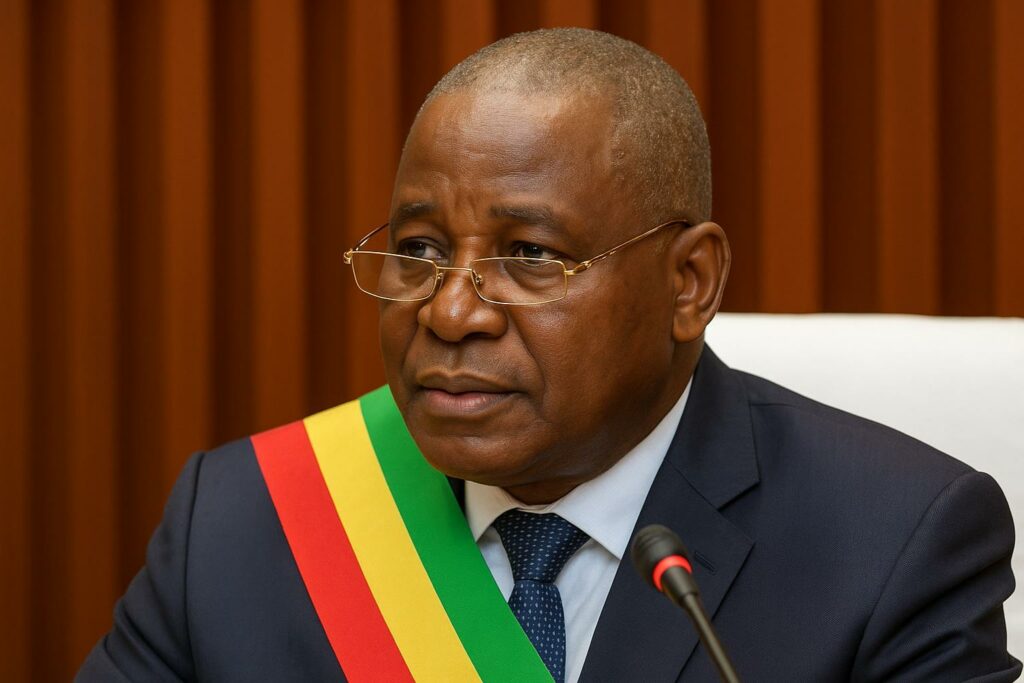Closing of the 2025 Ordinary Session in Brazzaville
Under the marble dome of the Palais des Congrès, the Congolese National Assembly and Senate simultaneously lowered the curtain on their 2025 ordinary session on 13 August. National Assembly Speaker Isidore Mvouba and Senate President Pierre Ngolo, addressing a chamber packed with lawmakers, members of the diplomatic corps and invited observers from the Central African Economic and Monetary Community, sounded a note of cautious optimism. “The quality of deliberation has honoured the expectations of our constituents,” Mvouba stated, acknowledging the diligence of the 151 deputies who sat for twelve uninterrupted weeks of debate.
Parliamentarians examined thirty-two bills in the lower house and twenty-seven in the upper chamber, ultimately adopting twenty-seven and twenty-four respectively, according to figures later confirmed by the General Secretariat of the Government. Observers from the International Parliamentary Union present in Brazzaville noted procedural compliance with standing orders, an assessment that reinforces the institutional credibility sought by the leadership.
Budget Orientation Debate and Fiscal Discipline
At the core of the session stood the annual Budget Orientation Debate, a mechanism introduced after the 2019 constitutional reform to give legislators ex-ante oversight of public finances. Finance Minister Ingrid Olga Ghislaine Ebouka-Babackas presented macro-fiscal assumptions that blend moderate oil price recovery with continued diversification of the non-extractive sector. Deputies from all parties pressed for stricter monitoring of public spending, mindful that Congo’s debt-to-GDP ratio, although stabilising, still requires prudence. The minister assured the assembly that talks with multilateral partners, including the IMF under the Extended Credit Facility, will remain conditional on sustained domestic revenue mobilisation.
For Speaker Mvouba, fiscal debate is inseparable from civic comportment. “Criticism must illuminate, not vilify,” he asserted, calling on elected officials to eschew the polarising language that too often occupies social media. His statement echoes concerns expressed in a July note by the High Council for Communication and Audiovisual, which warned that online disinformation could imperil investor confidence.
Disaster Response and Social Cohesion
Beyond macroeconomics, the house applauded rapid governmental response to the devastating floods of June 2025, which displaced nearly 12,000 citizens along the banks of the Congo and Djoué rivers. Legislators commended the inter-ministerial task force headed by Prime Minister Anatole Collinet Makosso and the humanitarian coordination led by First Lady Antoinette Sassou-Nguesso, whose foundation facilitated temporary shelters and mobile clinics. According to the National Centre for Disaster Risk Reduction, the relocation of flood victims to safer ground in Kintélé reduced potential water-borne disease outbreaks by forty per cent compared with previous episodes.
Such solidarity, Mvouba argued, must set the tone for the National Day celebrations on 15 August. He portrayed the fête as “a collective pause to reaffirm unity, peace and progress,” urging compatriots to honour a social contract that transcends partisan boundaries.
Preparing the Ground for the 2026 Presidential Poll
With the next presidential election less than eighteen months away, Senate President Pierre Ngolo cautioned that the country stands at a “democratic inflection point”. Echoing President Denis Sassou Nguesso’s earlier national address, Ngolo reminded senators that to legislate is to “carry the nation’s aspirations in one’s heart and serve them with unalloyed loyalty”.
He invited both houses to scrutinise the legal framework governing the vote, notably the functioning of the Independent National Electoral Commission, whose operational budget was endorsed during the session. Civil society platforms such as Cercle d’Action pour la Démocratie welcomed the allocation, noting that early funding enhances logistical readiness and transparency.
Freedom of Expression within Republican Ethics
Ngolo’s final intervention centred on the dialectic between liberty and responsibility. The senator underscored that in the Congolese constitutional order, freedom of speech is guaranteed but circumscribed by the need to preserve public order. “Defamation, hate speech and manipulation must be entirely proscribed,” he warned, referencing recent jurisprudence of the Constitutional Court that upheld sanctions against defamatory digital content.
Diplomatic observers regard the emphasis on decorum as consonant with regional trends. In July, the African Commission on Human and Peoples’ Rights urged member states to balance open debate with safeguards against hate narratives. By aligning parliamentary rhetoric with such continental norms, Brazzaville seeks to consolidate its profile as a predictable partner in Central Africa.
Ultimately, the session’s closing messages converge on a single imperative: the consolidation of national harmony as a precondition for sustainable development. In a polity where political debate is often passionate, the call to replace invective with constructive scrutiny may prove as significant as any statute adopted this year.

